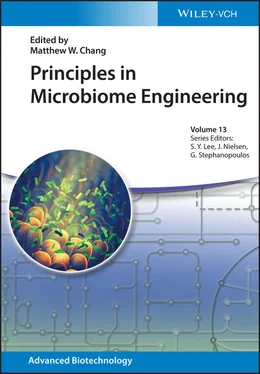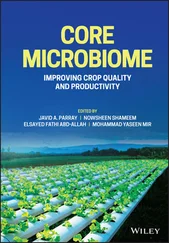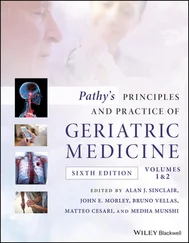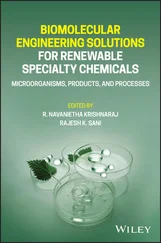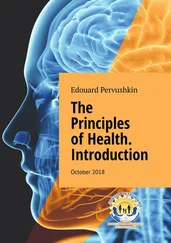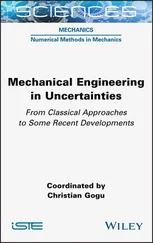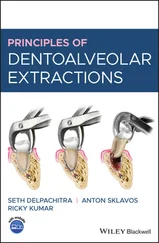Principles in Microbiome Engineering
Здесь есть возможность читать онлайн «Principles in Microbiome Engineering» — ознакомительный отрывок электронной книги совершенно бесплатно, а после прочтения отрывка купить полную версию. В некоторых случаях можно слушать аудио, скачать через торрент в формате fb2 и присутствует краткое содержание. Жанр: unrecognised, на английском языке. Описание произведения, (предисловие) а так же отзывы посетителей доступны на портале библиотеки ЛибКат.
- Название:Principles in Microbiome Engineering
- Автор:
- Жанр:
- Год:неизвестен
- ISBN:нет данных
- Рейтинг книги:5 / 5. Голосов: 1
-
Избранное:Добавить в избранное
- Отзывы:
-
Ваша оценка:
- 100
- 1
- 2
- 3
- 4
- 5
Principles in Microbiome Engineering: краткое содержание, описание и аннотация
Предлагаем к чтению аннотацию, описание, краткое содержание или предисловие (зависит от того, что написал сам автор книги «Principles in Microbiome Engineering»). Если вы не нашли необходимую информацию о книге — напишите в комментариях, мы постараемся отыскать её.
Provides an overview of the techniques and applications insight into the complex composition and interactions of microbiomes Principles in Microbiome Engineering
Principles in Microbiome Engineering
Principles in Microbiome Engineering — читать онлайн ознакомительный отрывок
Ниже представлен текст книги, разбитый по страницам. Система сохранения места последней прочитанной страницы, позволяет с удобством читать онлайн бесплатно книгу «Principles in Microbiome Engineering», без необходимости каждый раз заново искать на чём Вы остановились. Поставьте закладку, и сможете в любой момент перейти на страницу, на которой закончили чтение.
Интервал:
Закладка:
247 247 Williams, B.L., Hornig, M., Buie, T., et al. (2011). Impaired carbohydrate digestion and transport and mucosal dysbiosis in the intestines of children with autism and gastrointestinal disturbances. PLoS One 6 (9): e24585.
248 248 Kang, D.‐W., Park, J.G., Ilhan, Z.E., et al. (2013). Reduced incidence of Prevotella and other fermenters in intestinal microflora of autistic children. PLoS One 8 (7): e68322.
249 249 Saurman, V., Margolis, K.G., and Luna, R.A. (2020). Autism spectrum disorder as a brain‐gut‐microbiome axis disorder. Dig. Dis. Sci. 65 (3): 818–828.
250 250 Navarro, F., Pearson, D.A., Fatheree, N., et al. (2015). Are ‘leaky gut’ and behavior associated with gluten and dairy containing diet in children with autism spectrum disorders? Nutr. Neurosci. 18 (4): 177–185.
251 251 Hyman, S.L., Stewart, P.A., Foley, J., et al. (2016). The gluten‐free/casein‐free diet: a double‐blind challenge trial in children with autism. J. Autism Dev. Disord. 46 (1): 205–220.
252 252 Ghalichi, F., Ghaemmaghami, J., Malek, A., and Ostadrahimi, A. (2016). Effect of gluten free diet on gastrointestinal and behavioral indices for children with autism spectrum disorders: a randomized clinical trial. World J. Pediatr. 12 (4): 436–442.
253 253 Newell, C., Bomhof, M.R., Reimer, R.A., et al. (2016). Ketogenic diet modifies the gut microbiota in a murine model of autism spectrum disorder. Mol. Autism. 7 (1): 37.
254 254 Kraeuter, A.‐K., Phillips, R., and Sarnyai, Z. (2020). Ketogenic therapy in neurodegenerative and psychiatric disorders: from mice to men. Prog. Neuro‐Psychopharmacol. Biol. Psychiatry 101: 109913.
255 255 Sanctuary, M.R., Kain, J.N., Chen, S.Y., et al. (2019). Pilot study of probiotic/colostrum supplementation on gut function in children with autism and gastrointestinal symptoms. PLoS One 14 (1): e0210064.
256 256 Arnold, L.E., Luna, R.A., Williams, K., et al. (2019). Probiotics for gastrointestinal symptoms and quality of life in autism: a placebo‐controlled pilot trial. J. Child Adolesc. Psychopharmacol. 29 (9): 659–669.
257 257 Sampson, T.R., Debelius, J.W., Thron, T., Janssen, S., et al. (2016). Gut microbiota regulate motor deficits and neuroinflammation in a model of Parkinson's disease. Cell 167 (6): 1469–1480.e12.
258 258 Miraglia, F. and Colla, E. (2019). Microbiome, Parkinson's disease and molecular mimicry. Cells 8 (3): 222.
259 259 Vuotto, C., Battistini, L., Caltagirone, C., and Borsellino, G. (2020). Gut microbiota and disorders of the central nervous system. Neuroscientist, p. https://doi.org/10.1177/1073858420918826.
260 260 Akbari, E., Asemi, Z., Kakhaki, R.D., Bahmani, F., et al. (2016). Effect of probiotic supplementation on cognitive function and metabolic status in Alzheimer's disease: a randomized, double‐blind and controlled trial. Frontiers in aging neuroscience, 8, 256.
261 261 Castelli, V., d'Angelo, M., Lombardi, F., Alfonsetti, M., et al. (2020). Effects of the probiotic formulation SLAB51 in in vitro and in vivo Parkinson's disease models. Aging‐Us 12 (5): 4641–4659.
262 262 Wu, F., Guo, X., Zhang, M., Ou, Z., et al. (2020). An Akkermansia muciniphila subtype alleviates high‐fat diet‐induced metabolic disorders and inhibits the neurodegenerative process in mice. Anaerobe 61:102138
263 263 Costa, J., Lunet, N., Santos, C., Santos, J., et al. (2010). Caffeine exposure and the risk of Parkinson's disease: a systematic review and meta‐analysis of observational studies. J. Alzheimers Dis. 20 (Suppl. 1): S221–S238.
264 264 Khadrawy, Y.A., Salem, A.M., EI‐Shamy, K.A., Ahmed, E.K., et al. (2017). Neuroprotective and therapeutic effect of caffeine on the rat model of Parkinson's disease induced by rotenone. J. Dietary Suppl. 14 (5): 553–572.
265 265 Sonsalla, P.K., Wong, L.Y., Harris, S.L., Richardson, J.R., et al. (2012). Delayed caffeine treatment prevents nigral dopamine neuron loss in a progressive rat model of Parkinson's disease. Exp. Neurol. 234 (2): 482–487.
266 266 Yang, X. and Cheng, B. (2010). Neuroprotective and anti‐inflammatory activities of ketogenic diet on MPTP‐induced neurotoxicity. J. Mol. Neurosci. 42 (2): 145–153.
267 267 Phillips, M.C.L., Murtagh, D.K.J., Gilbertson, L.J., Asztely, F.J.S., et al. (2018). Low‐fat versus ketogenic diet in Parkinson's disease: a pilot randomized controlled trial. Mov Disord. 33 (8): 1306–1314.
268 268 Taylor, M.K., Sullivan, D.K., Mahnken, J.D., Burns, J.M., et al. (2018). Feasibility and efficacy data from a ketogenic diet intervention in Alzheimer's disease. Alzheimer's & Dement.: Transl. Res. Clin. Interv. 4: 28–36.
269 269 Brownlow, M.L., Benner, L., D'Agostino, D., Gordon, M.N., et al. (2013). Ketogenic diet improves motor performance but not cognition in two mouse models of Alzheimer's pathology. PLoS One 8 (9): e75713.
270 270 Van der Auwera, I., Wera, S., Leuven, F.V., and Henderson, S.T. (2005). A ketogenic diet reduces amyloid beta 40 and 42 in a mouse model of Alzheimer's disease. Nutr. Metab. 2 (1): 28.
271 271 Bäckhed, F., Ding, H., Wang, T., Hooper, L.V., et al. (2004). The gut microbiota as an environmental factor that regulates fat storage. Proc Natl Acad Sci U S A. 101 (44): 15718–15723.
272 272 Ridaura, V.K., Faith, J.J., Rey, F.E., Cheng, J., et al. (2013). Gut microbiota from twins discordant for obesity modulate metabolism in mice. Science 341 (6150): 1079–U49.
273 273 Sanz, Y. and Santacruz, A. (2008). Evidence on the role of gut microbes in obesity Revisión. Rev. Esp. Obesidad 6 (5): 256‐263.
274 274 Hooper, L.V., Wong, M.H., Thelin, A., Hansson, L., et al. (2001). Molecular analysis of commensal host‐microbial relationships in the intestine. Science. 291 (5505): 881–884.
275 275 Backhed, F., Manchester, J.K., Semenkovich, C.F., and Gordon, J.I. (2007). Mechanisms underlying the resistance to diet‐induced obesity in germ‐free mice. Proc. Natl. Acad. Sci. U.S.A. 104 (3): 979–984.
276 276 Cani, P.D., Possemiers, S., Van de Wiele, T., Guiot, Y., et al. (2009). Changes in gut microbiota control inflammation in obese mice through a mechanism involving GLP‐2‐driven improvement of gut permeability. Gut 58 (8): 1091–1103.
277 277 van Nood, E., Vrieze, A., Nieuwdrop, M., Fuentes, S., et al. (2013). Duodenal infusion of donor feces for recurrent Clostridium difficile. N. Engl. J. Med. 368 (5): 407–415.
278 278 Everard, A., Lazarevic, V., Derrien, M., Girard, M., et al. (2011). Responses of gut microbiota and glucose and lipid metabolism to prebiotics in genetic obese and diet‐induced leptin‐resistant mice. Diabetes 60 (11): 2775–2786.
279 279 Cohen, J.C., Horton, J.D., and Hobbs, H.H. (2011). Human fatty liver disease: old questions and new insights. Science 332 (6037): 1519–1523.
280 280 Socha, P., Wierzbicka, A., Murawska, J.N., Wlodarek, D., et al. (2007). Nonalcoholic fatty liver disease as a feature of the metabolic syndrome. Rocz. Panstw. Zakl. Hig. 58 (1): 129–137.
281 281 Compare, D., Coccoli, P., Rocco, A., Nardone, O.M., et al. (2012). Gut–liver axis: the impact of gut microbiota on non alcoholic fatty liver disease. Nutr. Metab. Cardiovasc. Dis. 22 (6): 471–476.
282 282 Abu‐Shanab, A. and Quigley, E.M. (2010). The role of the gut microbiota in nonalcoholic fatty liver disease. Nat. Rev. Gastroenterol. Hepatol. 7 (12): 691–701.
283 283 Miura, K. and Ohnishi, H. (2014). Role of gut microbiota and Toll‐like receptors in nonalcoholic fatty liver disease. World J. Gastroenterol. 20 (23): 7381–7391.
284 284 Delzenne, N.M., Cani, P.D., and Neyrinck, A.M. (2007). Modulation of glucagon‐like peptide 1 and energy metabolism by inulin and oligofructose: experimental data. J. Nutr. 137 (11): 2547S–2551S.
285 285 Barton, W., Penney, N.C., Cronin, O., Garcia‐Perez, I., et al. (2017). The microbiome of professional athletes differs from that of more sedentary subjects in composition and particularly at the functional metabolic level. Gut. 67 (4): 625–633.
Читать дальшеИнтервал:
Закладка:
Похожие книги на «Principles in Microbiome Engineering»
Представляем Вашему вниманию похожие книги на «Principles in Microbiome Engineering» списком для выбора. Мы отобрали схожую по названию и смыслу литературу в надежде предоставить читателям больше вариантов отыскать новые, интересные, ещё непрочитанные произведения.
Обсуждение, отзывы о книге «Principles in Microbiome Engineering» и просто собственные мнения читателей. Оставьте ваши комментарии, напишите, что Вы думаете о произведении, его смысле или главных героях. Укажите что конкретно понравилось, а что нет, и почему Вы так считаете.
